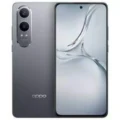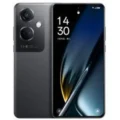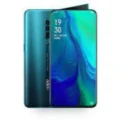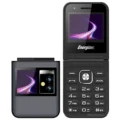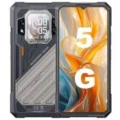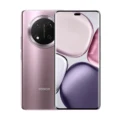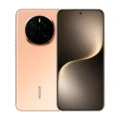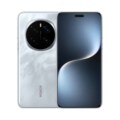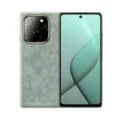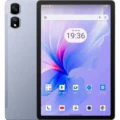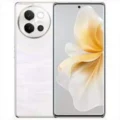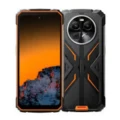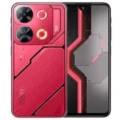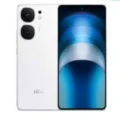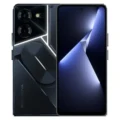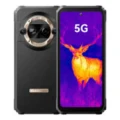Oppo F11 Pro
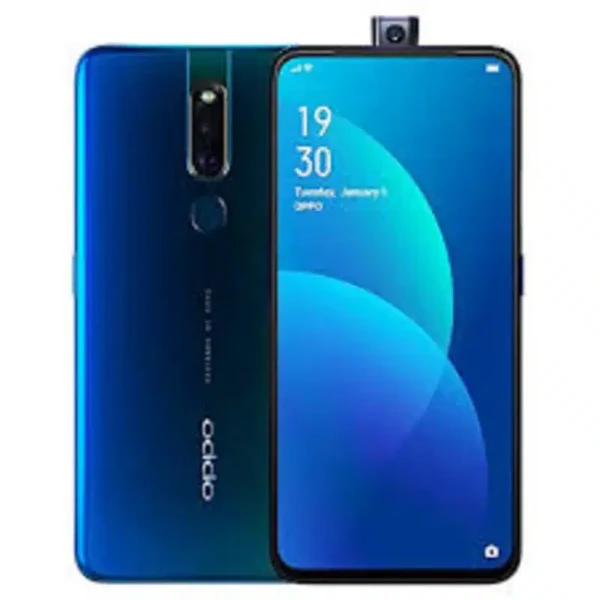

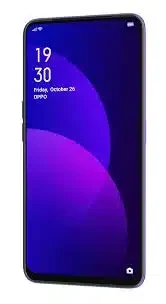
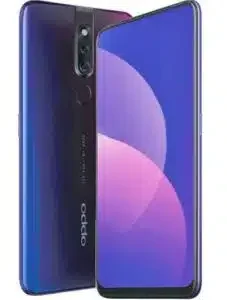
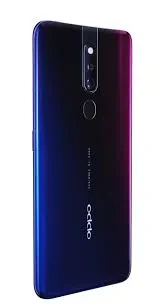
- : 4/6GB RAM Helio P70
- : 6.53" 1080x2340 pixels
- : 4000mAh 20W
- : 48MP 1080p
Oppo F11 Pro: A Mid-Range Powerhouse
The Oppo F11 Pro, released in March 2019, caters to users seeking a feature-rich mid-range smartphone. Let’s delve into its key specifications.
Display and Design
The F11 Pro boasts a spacious 6.5-inch LTPS IPS LCD display with a sharp resolution of 1080 x 2340 pixels, offering a clear and immersive viewing experience.
Performance
Under the hood, the MediaTek Helio P70 processor coupled with 6GB of RAM ensures smooth performance for everyday tasks and multitasking.
Storage
The phone comes in two storage variants: 64GB and 128GB. Both options offer ample space for apps, photos, and videos, with the added benefit of a microSD card slot for expandable storage.
Camera
The rear camera system is a triple-sensor setup, featuring a high-resolution 48-megapixel main sensor for capturing stunning detail. A 5-megapixel depth sensor assists in creating natural-looking bokeh effects, while a 2-megapixel macro sensor allows for capturing close-up shots with exceptional clarity. The 16-megapixel front-facing camera caters to selfie enthusiasts.
Battery
The F11 Pro is equipped with a long-lasting 4000mAh battery, ensuring you can stay connected throughout the day. VOOC 3.0 fast charging technology provides quick power refills, minimizing downtime.
In Conclusion
The Oppo F11 Pro emerges as a compelling mid-range option, offering a large display, capable performance, a versatile camera system, and a long-lasting battery with fast charging. While other smartphones might compete in terms of specifications at a lower price point, the F11 Pro remains a solid choice for users seeking a well-rounded package.
Want to Learn More?
Visit the Oppo Official Website
Still Unsure?
Explore Other Options at the Oppo Store
Specs
Network
| 2G Network GSM 850 / 900 / 1800 / 1900 - SIM 1 & SIM 2 (dual-SIM) CDMA 800 / 1900 |
GSM 850 / 900 / 1800 / 1900 - SIM 1 & SIM 2 |
| 3G Network |
HSDPA 850 / 900 / 2100 |
| 4G Network |
1, 3, 5, 7, 8, 20, 28, 38, 40, 41 - V1 1, 3, 5, 7, 8, 38, 40, 41 - V2 1, 3, 5, 8, 38, 40, 41 - V3 |
| Speed | HSPA 42.2/5.76 Mbps, LTE (2CA) Cat7 300/50 Mbps |
LAUNCH
| Announced | March, 2026 |
| Status | Available. Released 2019, March |
BODY
| Dimensions | 161.3 x 76.1 x 8.8 mm (6.35 x 3.00 x 0.35 in) |
| Weight | 190 g (6.70 oz) |
| Build | Glass front, plastic back, plastic fram |
| SIMs SIM (Subscriber Identity Module) is a small card that contains mobile network subscriber's account information. This allows the phone using the card to attach to a mobile network. The SIM card is most commonly associated with GSM and UMTS mobile networks. Moving a SIM card from one phone to another allows a subscriber to switch mobile phones without having to contact their mobile network carrier. SIM cards can also be used by a phone to store limited amounts of data, such as phone numbers and text messages. | Hybrid Dual SIM (Nano-SIM, dual stand-by) |
Display
| Display Type Display Technology => A number of display technologies and types used in mobile phones => TFT (Thin Film Transistor), IPS (In-Place Switching), OLED (Organic Light Emitting Diode), AMOLED (Active-Matrix Organic Light-Emitting Diode), Super AMOLED (an even advanced version of AMOLED), Resistive Touchscreen (Resistive touchscreens contain two layer of conductive material with a very small gap between them which acts as a resistance), Capacitive Touchsceen (Capacitive touchscreen technology consists of a layer of glass coated with a transparent conductor) | IPS LCD |
| Size | 6.53 inches, 103.6 cm2 (~84.4% screen-to-body ratio) |
| Resolution | 1080 x 2340 pixels, 19.5:9 ratio (~397 ppi density) |
PLATFORM
| Operating System OS => Every computer system run on a base software called Operating System (OS). Operating System controls all basic operations of the computer (such as smartphone, PDAs, tablet computers and other handheld devices). The Operating System allows the user to install and run third party applications (apps), apps are used to add new functionality to the device. | Android 9.0 (Pie), ColorOS 6 |
| Chipset Chipset is a group of integrated circuits designed to perform one or a more dedicated functions, often with real time computing constraints, Popular smartphones are equipped with more advanced embedded chipsets that can do many different tasks depending on their programming. | Mediatek MT6771 Helio P70 (12 nm) |
| CPU CPU (Central Processing Unit) mostly known as processors, CPU processes instructions in order to carry out certain functions that make your device operate properly. Processors are often described as the brain of computers, smartphones and tablets, Smartphones and tablets rely on processors to carry out their every task, Processors are an incredibly important factor in selecting any type of computing device, including your smartphone. | Octa-core (4x2.1 GHz Cortex-A73 & 4x2.0 GHz Cortex-A53) |
| GPU GPU (Graphics Processing Unit) is a single-chip processor designed to rapidly manipulate and alter memory to accelerate the creation of images in a frame buffer intended for output to a display, This includes things such as lighting effects, object transformations, and 3D motion. | Mali-G72 MP3 |
MEMORY
| Card Slot Memory Card Slot is a special slot for inserting a memory card. Memory cards allow you to expand the phone's built-in memory, A memory card (sometimes called a flash memory card or a storage card) is a small storage medium used to store data such as text, pictures, audio, and video, for use on small, portable or remote computing devices such as mobile phones, mp3 players, digital cameras. | microSDXC (uses shared SIM slot) |
| Internal | 64GB 4GB RAM, 64GB 6GB RAM, 128GB 6GB RAM eMMC 5.1 |
MAIN CAMERA
| Cameras Specs Today’s smartphones come equipped with a very comprehensive set of camera related specifications. Our smartphone, for many of us, has become our primary camera due to it being the one we always have with us. |
48 MP, f/1.8, (wide), 1/2.25", 0.8µm, PDAF 5 MP, f/2.4, (depth) |
| Video | 1080p@30fps |
| Camera Features | LED flash, HDR, panorama |
SELFIE CAMERA
| Cameras Specs Today’s smartphones come equipped with a very comprehensive set of camera related specifications. Our smartphone, for many of us, has become our primary camera due to it being the one we always have with us. |
Motorized pop-up 16 MP, f/2.0, 26mm (wide), 1/3.06", 1.0µm |
| Features |
HDR |
| Video | 1080p@30fps |
SOUND
| Loudspeaker | Yes |
| 3.5mm jack | Yes |
COMMS
| WLAN |
Wi-Fi 802.11 a/b/g/n/ac, dual-band, Wi-Fi Direct |
| Positioning | GPS, GLONASS, BDS |
| Bluetooth Bluetooth is a wireless communications technology for exchanging data between mobile phones, headsets, computers and other network devices over short distances without wires, Bluetooth technology was primarily designed to support simple wireless networking of personal consumer devices. | 4.2, A2DP, LE |
| Infrared Infrared connectivity is an old wireless technology used to connect two electronic devices. It uses a beam of infrared light to transmit information and so requires direct line of sight and operates only at close range. | |
| USB | microUSB 2.0, OTG |
| NFC NFC (Near field communication) is a set of standards for smartphones and similar devices to establish peer-to-peer radio communications with each other by touching them together or bringing them into proximity, usually no more than a few inches. | |
| Radio |
Features
| Sensors Sensors are electronic components that detects and responds to some type of input from the physical environment. The specific input could be light, heat, motion, moisture, pressure and location, The output is generally a signal that is converted to use in computing systems, a location sensor, such as a GPS receiver is able to detect current location of your electronic device. |
Fingerprint (rear-mounted), accelerometer, proximity, compass |
BATTERY
| Battery Type Battery Type => Cell phones run on various kinds of batteries depending on the manufacturer, phone size or shape and features. There are basically four types of cell phone batteries => Lithium Polymer, Lithium Ion, Nickel Metal Hydride and Nickel Cadmium. | Li-Ion (Lithium Ion) |
| Charging The functionality responsible for recharging batteries in portable devices, such as mobile phones, significantly influences both battery lifespan and the practicality of daily product usage.The charging process, encompassing factors like voltage, current, and completion actions, is contingent upon the battery's size and type.Contemporary battery chargers dynamically adjust charging parameters based on the battery's current charging state. Charging an empty battery poses no safety risk, allowing for a quicker charging process. Consequently, many charging speed benchmarks, including ours, specify the battery level achieved after a 30-minute session on an empty battery.Standard chargers with a power output of 5V/1A, equivalent to 5W, serve as a baseline, with anything surpassing this speed classified as quick or fast charging. | 20W wired |
MISC
| Colors |
Thunder Black, Aurora Green |
| Model | CPH1969, CPH2209, CPH1987 |
| Price | About 320 EUR |
TESTS
Reviews
Disclaimer Note
We strive to maintain accurate and up-to-date content on our website for general information purposes only. Please refrain from using the material for business, legal, or any other decisions.


